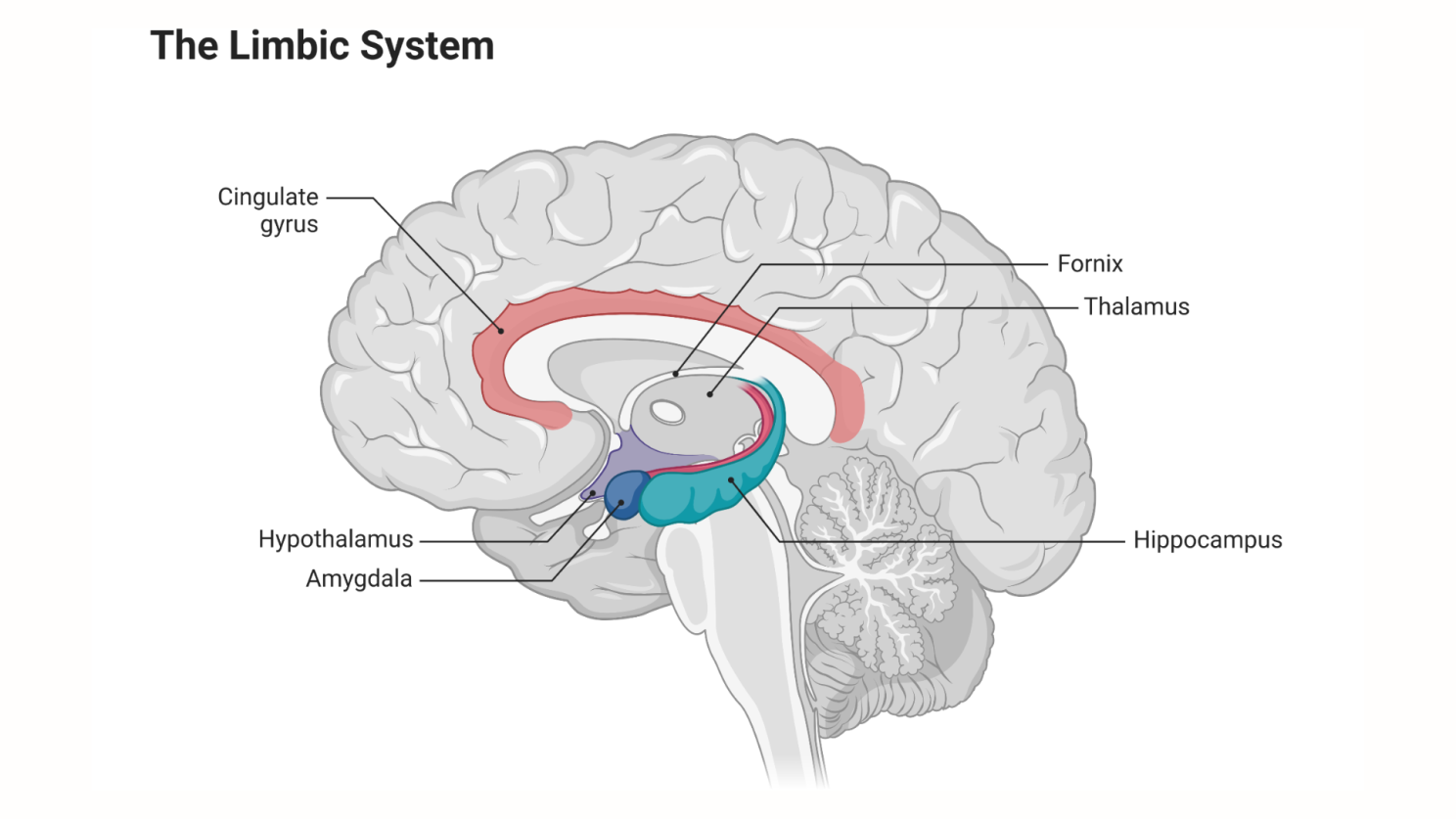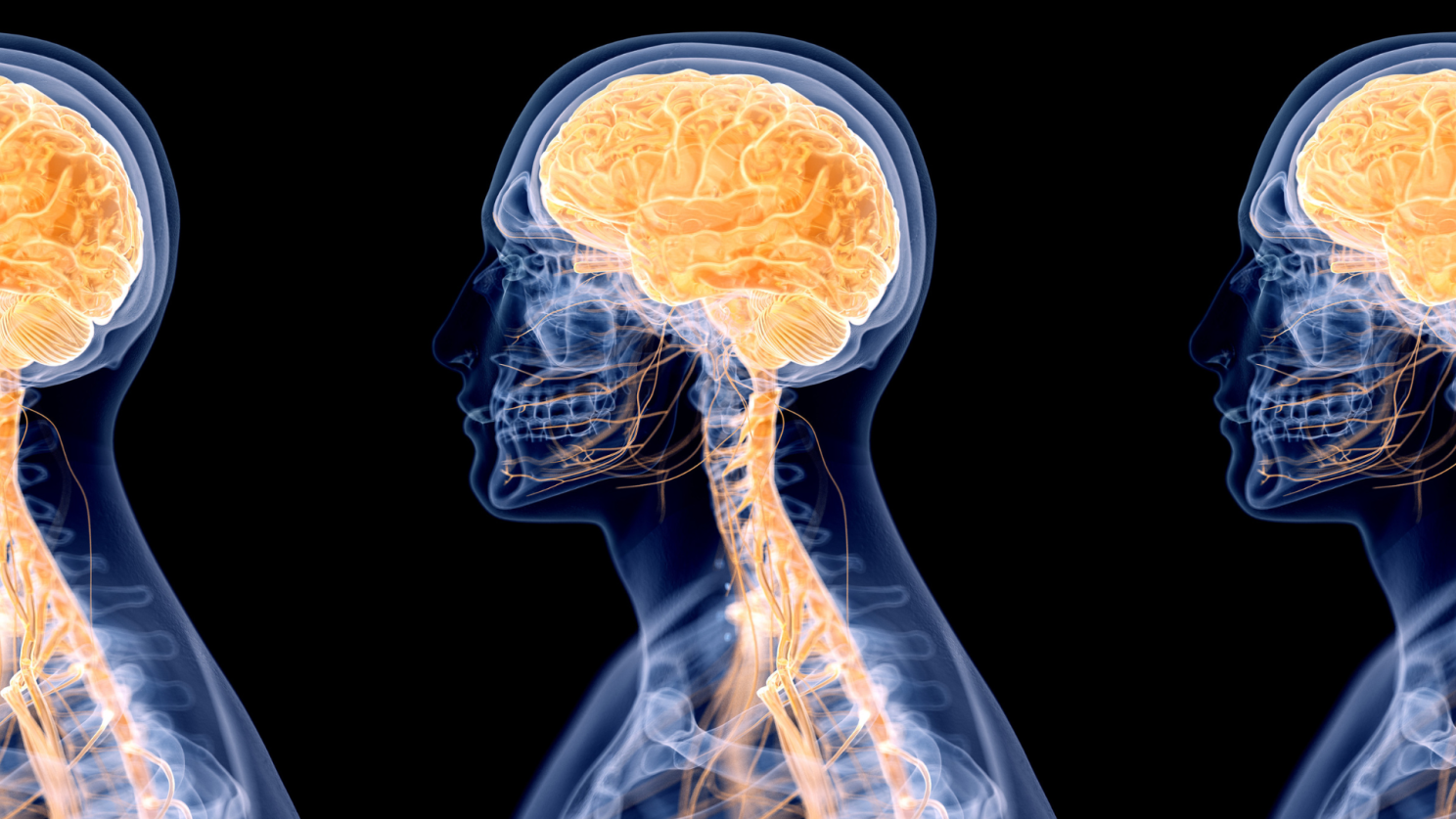First impressions can form in as little as one tenth of a second. In that blink of time, your brain is already evaluating facial expressions, posture, and tone of voice to make a rapid judgment. What's remarkable is that this evaluation doesn't come from deliberate thought. It comes from a powerful network deep within your brain called the limbic system. This system pulls from your past experiences, emotional memories, and subtle internal cues to guide how you instinctively respond to people and situations.
The limbic system can be described as the emotional core of your brain. It helps you determine what feels safe or threatening. It's the reason a song can instantly bring back the emotions of a childhood memory or why you feel uneasy without knowing exactly why. It is made up of interconnected structures like the amygdala, hippocampus, hypothalamus, and cingulate gyrus that work together as a functional network. The limbic system plays a major role in how you feel, remember, connect, and act. Though most people have never heard of it, this network influences most aspects of how you perceive and respond to the world around you.
The limbic system is often called the "emotional brain," but this description barely scratches the surface of its true importance. Think of it as a sophisticated command center located deep within your brain. It is positioned strategically between your brainstem (which controls basic survival functions) and your neocortex (responsible for higher-level thinking). This network of interconnected structures has been fine-tuned for the delicate balance between emotion, memory, and behavior.
Unlike other brain regions that specialize in single functions, the limbic system operates as an integrated functional network where emotional processing, memory formation, and behavioral responses work together seamlessly—always in close coordination with other brain regions like the prefrontal cortex. It's the reason why emotional memories feel so vivid, why certain smells can trigger strong reactions, and why your gut feelings often prove to be surprisingly accurate.
The Amygdala: Often called the brain's "alarm system," the amygdala is an almond-shaped structure that processes emotional information with lightning speed. It evaluates every situation for potential threats or rewards. This means responses are often triggered before your conscious mind even registers what's happening. This explains why you may feel uneasy in certain situations or immediately warm up to particular people. Your amygdala is constantly working behind the scenes, analyzing emotional cues and social signals.
The Hippocampus: The hippocampus serves as your brain's memory architect, determining which experiences deserve permanent storage and which can be forgotten. It's particularly important for forming new memories and linking emotions to experiences. When you remember exactly where you were during a significant event, this is your hippocampus at work—weaving together the time, the place, and the emotional significance into a lasting memory. This is especially true for major life events, both positive and negative, where the emotional intensity creates such vivid memories that you can recall not just what happened, but exactly what you were wearing, who was there, what the weather was like, and more.

The Hypothalamus: The hypothalamus wields enormous influence over your daily life. It regulates fundamental drives like hunger, thirst, sleep, and sexual behavior while coordinating your body's stress response. This structure is why your appetite might disappear when you're anxious or why you feel energized when excited. It's constantly adjusting your internal environment to match your emotional state.
The Cingulate Gyrus: The cingulate gyrus acts as a bridge between emotional and cognitive processing. This helps you make sense of complex social situations and regulate emotional responses. It plays a crucial role in empathy, allowing you to understand and respond to others' emotions while managing your own emotional reactions.
The Thalamus: Often referred to as the brain's relay station, the thalamus helps process and route sensory information to appropriate regions. It plays a supporting role by helping direct emotionally relevant stimuli to the areas best equipped to respond.
The Basal Ganglia: The basal ganglia are traditionally associated with movement, but they are also involved in emotional regulation, habit formation, and reward processing. Their strong connections with other limbic structures make them an important player in how you learn from experience and respond to emotionally charged situations.
Decision-Making and Intuition
Your limbic system processes emotional and social information faster than conscious thought, contributing to what we call "gut feelings" or intuition. When you instantly like or dislike someone, or when something just feels right, your limbic system is drawing on vast stores of emotional memory and pattern recognition to guide your decisions. This same rapid processing explains why you might sense when someone isn't being truthful. Your limbic system can detect the subtle inconsistencies in facial expressions, voice tone, and body language that your conscious mind hasn't yet registered.
Stress and Recovery
The limbic system coordinates your stress response, determining when to activate your fight-or-flight system and when to engage your parasympathetic nervous system's rest-and-digest mode. A well-functioning limbic system helps you bounce back from stressful situations more quickly and maintain emotional balance throughout daily challenges.
Social Connection and Empathy
Your ability to read facial expressions, understand social cues, and form meaningful relationships relies heavily on your limbic system. It helps you navigate complex social situations by rapidly assessing emotional context and adjusting your behavior accordingly.
Learning and Motivation
The limbic system attaches emotional significance to experiences, making some memories incredibly vivid while others fade quickly. Think of it as an emotional tagging system that helps prioritize what's important to learn and remember.
Supporting Your Limbic System Health
While your limbic system functions automatically, certain lifestyle practices can support its optimal performance:
The Interconnected Brain
What makes the limbic system truly remarkable is how seamlessly it integrates with other brain networks. It doesn't operate in isolation but constantly communicates with your prefrontal cortex (for decision-making), your sensory systems (for processing environmental information), and your motor systems (for coordinating behavioral responses). This integration creates the rich, nuanced experience of human emotion and consciousness.
Understanding your limbic system offers valuable insights into why you react certain ways in different situations, how memories and emotions intertwine, and what drives your deepest motivations. Rather than being at the mercy of your emotional responses, recognizing how this system works can help you work with your brain's natural processes to enhance well-being and decision-making. When you understand how your limbic system operates, you gain the ability to control how you'd like to respond to life's challenges!


More Info: At WellPro, we're developing an AI-native end-to-end clinical platform for personalized, preventative, and data-driven care designed to help clinicians deliver scalable, high-touch, and proactive care that truly empowers the patient.